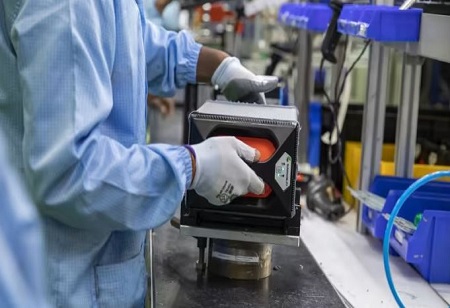
Indian Govt's Multibillion-Dollar Subsidy to boost Battery Makers in Clean Energy Initiative: Report

 The Indian government is developing a multibillion-dollar subsidy programme to assist companies involved in the production of electricity grid batteries, according to a proposal from the power ministry. This initiative, according to sources, is part of the country's transition to clean energy.
The Indian government is developing a multibillion-dollar subsidy programme to assist companies involved in the production of electricity grid batteries, according to a proposal from the power ministry. This initiative, according to sources, is part of the country's transition to clean energy.
A draught proposal in India outlines a production-linked incentive subsidy scheme. From 2023 to 2030, companies would receive 216 billion rupees ($2.63 billion) under this scheme to establish battery cell manufacturing capacity in the country.
According to the sources, the draught plan recognises the limitations on expanding coal-based thermal generation due to "international opinion" and environmental considerations, deeming it unfeasible. The Indian power ministry did not respond immediately to a comment request. According to the draught plan, establishing domestic battery cell manufacturing is critical to decreasing India's reliance on competitor China for battery imports, in addition to facilitating the energy transition.
"If India does not take urgent steps to set up local manufacturing capacity of battery energy storage systems, imperatives of our energy transition would lead to huge imports from China," the proposal document seen by sources.
Indian researchers are exploring several new chemistries for battery storage to reduce dependence on imports of lithium, the predominant mineral used in batteries today. Most of the raw lithium in the world is now processed into battery-grade chemicals in China.
R.K. Singh, the Union minister for power, new and renewable energy, said on several occasions that given the current high cost of storage, there is a need to boost the manufacturing of storage systems in the country, and a PLI scheme would support the capacity addition.
Finance minister Nirmala Sitharaman announced funding support for the sector to ensure financial viability in the Union Budget 2023-24.